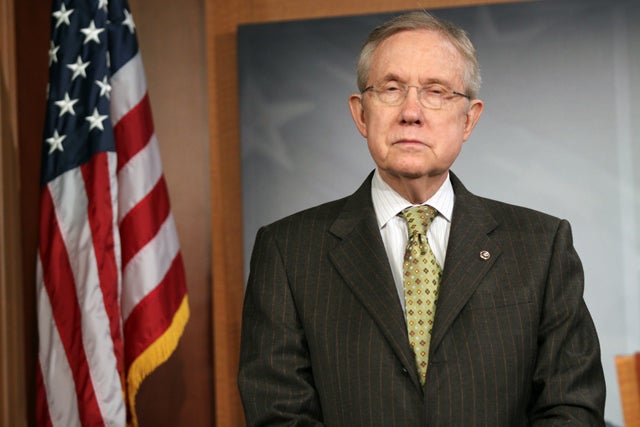Filibuster Deal Restricts Senators’ Rights to Debate Judicial Nominees
Todd Gaziano / Andrew Kloster /
This afternoon, Senate Majority Leader Harry Reid (D-NV) and Senate Minority Leader Mitch McConnell (R-KY) announced a potential filibuster deal that, among other problematic provisions, limits post-cloture debate on federal district court nominees (and non-Cabinet-level officials).
Senators currently have up to 30 hours of post-cloture debate on the merits of a district court nominee; the new rule would permit only two hours. This proposal would seriously undermine the rights of sitting senators to call attention to problematic district court nominees and, as a consequence, would enable the President to make more philosophically questionable and professionally unqualified nominations in the future.
Providing advice and consent to judicial nominees are critical, constitutionally-enumerated responsibilities of U.S. senators. Those confirmed to a federal judgeship retain their job during “good behavior” (virtually for life), and can only be removed by House impeachment and Senate conviction with a 2/3 vote. If the merits of a cabinet secretary are worthy of 30-hours of debate, then any judge appointed for life should be also.
Federal district court judgeships are incredibly important: not only are they on the short list for circuit and Supreme Court nomination (Justice Sotomayor was a district court judge for the Southern District of New York), but district court judges are on the front lines of enforcing federal law, and perhaps more importantly, sit in judgment on whether Congress or the President have exceeded their enumerated powers.
It is precisely because the federal courts are so important that senators previously have guarded their right to debate judicial nominees. Moreover, there is even more reason for them to retain the right of extended debate on district court judges because Supreme Court nominees will always get the attention they deserve and the same is generally true for important court of appeals nominees.
When senators have sought extended debate on a district court nominee, or threatened to do so, their efforts have rarely failed. In fact, cloture has been invoked on district court nominees only three times in American history: John McConnell in 2011, Brian Stewart in 1999, and Sidney Fitzwater in 1986.
That extended debate on a district court nominee has been invoked rarely does not mean it is not an important check on unfit or inappropriate nominees. The opposite is much more likely true. The threat of invoking the current rule is a powerful one that usually succeeds in generating the requested information about the nominee, leads to a compromise on the nominee or group of nominees, or causes to the withdrawal of a questionable nominee.
The current informal practice that any senator can place a “hold” on a district court nominee will become empty under the new rule. The only practical leverage a non-home-state senator has to enforce a hold is to invoke his or her right to extended debate on the nominee. Under the proposed rule, the Majority Leader could simply file cloture and there would be no more than two hours of post-cloture debate. So, for all practical purposes, the “hold” for district court nominees would be gone.
Limiting the right of objecting senators in this manner will also set a bad precedent for future rules changes. If the majority of Article III judges can be rammed through the Senate with limited debate, why not the rest of them? Why require potential Supreme Court nominees to appear and answer questions at confirmation hearings? The Senate should always be wary of ceding their constitutional prerogatives, but this is a particularly bad consequence of a deal others are legitimately questioning on other grounds.

